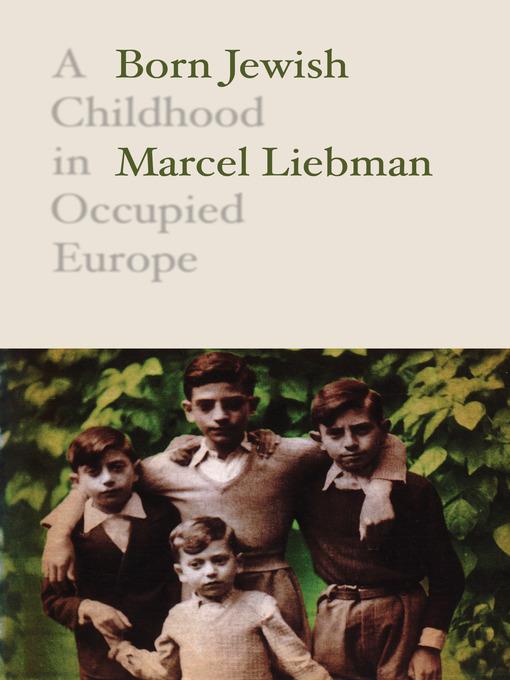
Born Jewish
A Childhood in Occupied Europe
کتاب های مرتبط
- اطلاعات
- نقد و بررسی
- دیدگاه کاربران
نقد و بررسی

November 14, 2005
The late Liebman (Leninism Under Lenin; The Russian Revolution) tells of his middle-class WWII-era Belgian upbringing, concentrating on the disparities among Belgian Jews, most notably how the wealthy treated those lower on the social ladder as sacrificial lambs. "They made me suffer an injustice which, in the very midst of Jews as a persecuted group, made distinctions between the affluent and the poor (the latter handed over defenceless) and set its notables...against the immigrants, the undesirable plebs," writes Liebman, whose older brother, Henri, was killed at Auschwitz and whose family separated to escape the Nazis, landing Liebman and his surviving brothers in the care of Catholic nuns, among other hideouts. Heron's sometimes wooden translation does not diminish the poignancy of Liebman's stories of brotherly bonding in times marked by worry, grief and the boredom of lying low. Liebman directs his anger about the crimes against European Jews not toward the people who inflicted them but the racism that fueled their actions, and promises his murdered brother that although "racism hacked out a void that will never be filled," he will "fight against it mercilessly" to ensure that such horrors are never visited upon anyone again. Though the stories of evasion are harrowing, what makes this book such an unusual and worthwhile read is Liebman's perspective, which lacerates ideas, not individuals.

December 8, 2005
The late Liebman (Leninism Under Lenin; The Russian Revolution) tells of his middle-class WWII-era Belgian upbringing, concentrating on the disparities among Belgian Jews, most notably how the wealthy treated those lower on the social ladder as sacrificial lambs. "They made me suffer an injustice which, in the very midst of Jews as a persecuted group, made distinctions between the affluent and the poor (the latter handed over defenceless) and set its notables...against the immigrants, the undesirable plebs," writes Liebman, whose older brother, Henri, was killed at Auschwitz and whose family separated to escape the Nazis, landing Liebman and his surviving brothers in the care of Catholic nuns, among other hideouts. Heron's sometimes wooden translation does not diminish the poignancy of Liebman's stories of brotherly bonding in times marked by worry, grief and the boredom of lying low. Liebman directs his anger about the crimes against European Jews not toward the people who inflicted them but the racism that fueled their actions, and promises his murdered brother that although "racism hacked out a void that will never be filled," he will "fight against it mercilessly" to ensure that such horrors are never visited upon anyone again. Though the stories of evasion are harrowing, what makes this book such an unusual and worthwhile read is Liebman's perspective, which lacerates ideas, not individuals.
Copyright 2005 Library Journal, LLC Used with permission.

December 1, 2005
This is a personal account of Liebman's life as a child in Nazi-occupied Belgium. His brother, Henri, was deported to Auschwitz at the age of 15 and died there. The author and the rest of his family survived. In her introduction to the book, Jacqueline Rose writes that at the outbreak of World War II, Liebman took from his father a fervent Belgian patriotism, somehow unmitigated by the fact that they were a family of immigrant Jews. As children they had been taught to hate communism, and they abhorred Germany and fascism. When the author and his younger brother returned to school in 1945, only one teacher noticed that Henri, the eldest of the three, was no longer there. One of the most funereal parts of the memoir is diary extracts on one "S.V.," a member of the Jewish Council who welcomed the instructions from the Nazis to "clamp down on the Jewish problem." When S.V. died years after the war, he was still "one of the most prominent leaders of the Jewish community in Brussels."(Reprinted with permission of Booklist, copyright 2005, American Library Association.)

























دیدگاه کاربران